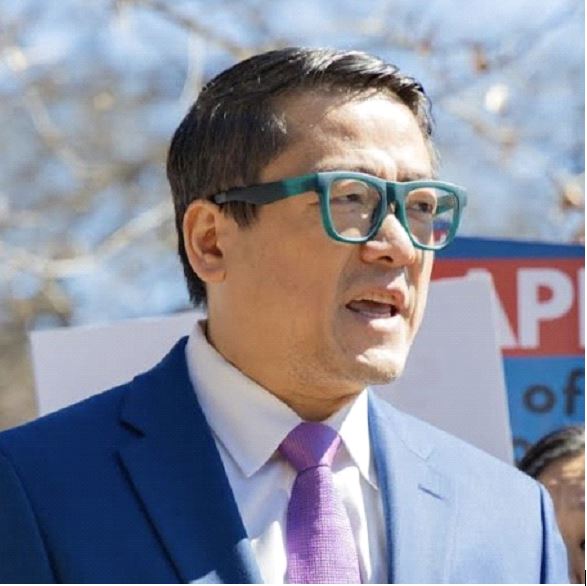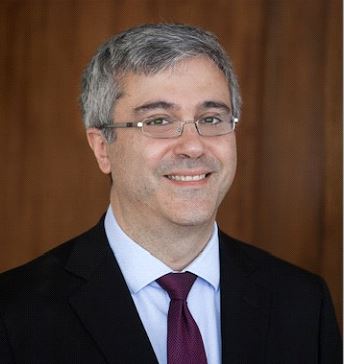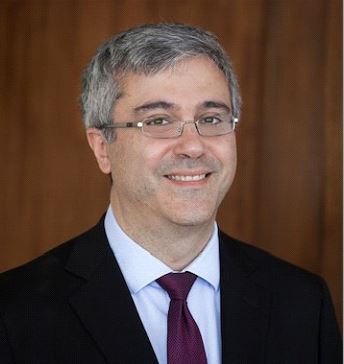By Tariq Khan & Kainat Rajput:
On August 22, 2025, American Community Media convened a national media briefing titled “Redistricting Battles Erupt Ahead of Midterm Elections.” The event gathered lawmakers, legal experts, and civil rights advocates to examine how partisan gerrymandering and weakened federal oversight are reshaping the U.S. electoral map.
At the center of the discussion was Texas — a state with a deeply entrenched Republican hold and one of the most contentious battlegrounds for voting rights and fair representation. The session was moderated by Sandy Close and Sunita Sohrabji, with participation from reporters across ethnic and community-serving news outlets, including Latino, Black, Asian American, Indigenous, and immigrant media.
Texas: Historical and Political Context
Texas’s political history provides a backdrop for today’s redistricting controversies.
⦁ Ann Richards was the last Democratic governor, serving from 1991 to 1995 before losing reelection to George W. Bush.
⦁ The last Democratic U.S. Senator, Robert Krueger, lost in 1993 to Kay Bailey Hutchison in a special election.
⦁ Since then, Republicans have dominated Texas politics. No Democrat has carried the state in a presidential election since Jimmy Carter in 1976, and GOP control has remained firm since the early 1990s.
This history helps explain why Texas redistricting battles are pivotal. The state’s rapidly changing demographics — with significant growth in Black and Latino populations — clash with maps designed to maintain Republican dominance.
Speaker Highlights
Rep. Gene Wu (Texas Democratic Leader)
Rep. Wu underscored the racial dimension of Texas’s redistricting process.
⦁ Warned that Republicans are redrawing maps to cement GOP power.
⦁ Stressed that Texas’s gerrymandering is race-based, unlike California’s independent commission approach.
⦁ Highlighted the lasting impacts on minority communities, warning that these changes could disenfranchise voters for decades.
⦁ Closed with a warning: “America faces authoritarian threats if people don’t stand up.”

Dr. Sam Wang (President, Electoral Innovation Lab, Princeton University)
Dr. Wang placed Texas’s redistricting in the broader national context.
⦁ Noted that redistricting laws vary by state, making national reforms complex.
⦁ Labeled Texas the “Wild West” of redistricting since it has no state-level regulations governing the process.
⦁ Called the current Texas gerrymander “the most extreme in modern voting rights history.”
⦁ Observed that nationally, gerrymandering has decreased since 2012 due to reforms, but Texas remains an outlier.
⦁ Urged state-level advocacy and court challenges as the most effective tools to safeguard fair maps.

Sara Rohani (Assistant Counsel, NAACP Legal Defense Fund)
Rohani highlighted the intersection of redistricting and racial justice.
⦁ Pointed to the 2020 Census, which recorded significant Black population growth.
⦁ Noted that this is the first redistricting cycle without Voting Rights Act preclearance following the Shelby County v. Holder (2013) decision.
⦁ Outlined ongoing litigation in Alabama and Louisiana, where racial gerrymanders are being challenged.
⦁ Emphasized that civil rights advocates are continuing to defend Black voters’ rights in court despite reduced federal oversight.

Thomas A. Saenz (President & General Counsel, MALDEF)
Saenz spoke to the Latino experience and legal implications.
⦁ Explained that Texas’s current maps already maximize Republican advantage.
⦁ Asserted that further GOP seat gains would require violating the Voting Rights Act.
⦁ Criticized public misstatements about redistricting law by officials such as Attorney General Pam Bondi.
⦁ Confirmed that MALDEF is preparing litigation against Texas’s maps.
⦁ Expressed concerns about Latino vote dilution, noting that even as Republicans court Latino voters, maps undercut their long-term political influence.

Media Questions and Engagement
Reporters from outlets including La Opinión, AsAmNews, Singtao Daily, Indian Voices, World Journal, and AMTV engaged speakers with pressing questions:
⦁ Could California’s “trigger maps” escalate into a nationwide partisan redistricting arms race?
⦁ How will minority voters defend representation when maps can be redrawn mid-decade?
⦁ What are the economic and civic costs of disenfranchisement on local communities?
⦁ Can state courts and lawsuits realistically restrain partisan abuses?
Dr. Wang noted that one-third of Texas voters will find themselves in new districts, emphasizing the destabilizing impact on representation.
Key Themes
Across the discussion, several urgent themes emerged:
⦁ Legal Battles Looming – Civil rights groups confirmed lawsuits are being filed to challenge racial gerrymanders.
⦁ Erosion of Federal Oversight – With the Voting Rights Act gutted, states like Texas operate unchecked.
⦁ Racial Implications – Both Black and Latino communities face systematic vote dilution.
⦁ Democratic Integrity at Risk – Speakers warned that gerrymandering erodes trust, fueling authoritarian threats.
Conclusion
The event underscored that redistricting is not simply a technical process — it is a battle for democracy and civil rights.
Texas stands at the epicenter, where demographic shifts, partisan strategy, and weakened voting rights protections collide. While litigation may challenge the most extreme abuses, lasting solutions will require public advocacy, state-level reforms, and vigilance by voters and journalists alike.
As Rep. Wu put it, “If people don’t stand up now, America faces authoritarian threats that will last for generations.”
Speaker Biographies
Rep. Gene Wu – Texas Democratic leader, attorney, and longtime advocate for immigrant and minority communities in Houston. He has been at the forefront of legislative debates on redistricting, education, and social justice.
Dr. Sam Wang – Neuroscientist, statistician, and President of Princeton University’s Electoral Innovation Lab. He is recognized nationally for his work on fair maps, election law, and voting rights reforms.
Sara Rohani – Assistant Counsel at the NAACP Legal Defense and Educational Fund, specializing in voting rights and litigation to combat racial discrimination in redistricting and election law.
Thomas A. Saenz – President and General Counsel of the Mexican American Legal Defense and Educational Fund (MALDEF). A veteran civil rights attorney, he has led numerous landmark cases protecting Latino voting rights and representation.



